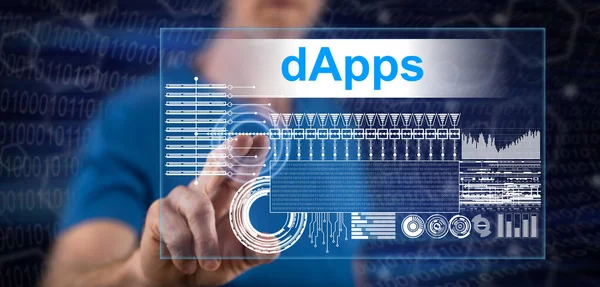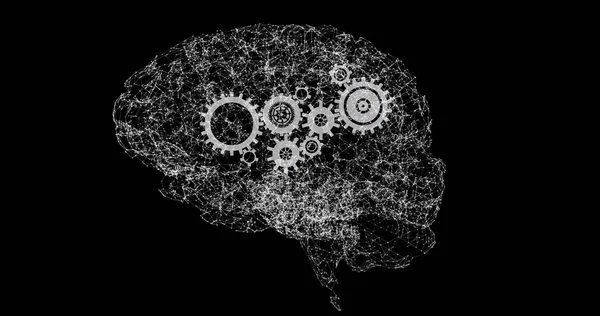
Web3 and the Decentralized Internet: Opportunities for Businesses
January 10, 2025
dAppsThe internet is undergoing a significant transformation, moving from centralized control to a decentralized framework powered by blockchain and other emerging technologies. This new paradigm, known as Web3, aims to create a more secure, transparent, and user-empowered digital environment. Businesses across industries are beginning to explore how Web3 can unlock new opportunities, enhance customer engagement, and drive innovation.
In this blog, we will explore the fundamentals of Web3, its impact on various industries, and the business opportunities it presents.
Understanding Web3 and the Decentralized Internet
Web3 represents the next phase of internet evolution, where decentralized technologies like blockchain, smart contracts, and distributed ledgers replace traditional centralized systems. Unlike Web2, where platforms like Google, Facebook, and Amazon control user data and interactions, Web3 aims to distribute power among users, ensuring greater privacy, security, and autonomy.
Key components of Web3 include:
- Blockchain Technology: Enables decentralized data storage, eliminating reliance on central authorities.
- Smart Contracts: Self-executing agreements that run on blockchain networks, reducing the need for intermediaries.
- Decentralized Applications (dApps): Applications that operate on blockchain without a central authority.
- Cryptocurrencies & Tokens: Digital assets that facilitate transactions, governance, and incentives within Web3 ecosystems.
Opportunities for Businesses in Web3
Web3 introduces several opportunities for businesses looking to innovate and gain a competitive edge in the digital economy. Here are some key areas where businesses can leverage Web3:
1. Decentralized Finance (DeFi) and Payment Solutions
- Businesses can adopt DeFi protocols to provide seamless, peer-to-peer financial transactions without relying on banks.
- Cryptocurrencies and stablecoins enable faster, borderless transactions with lower fees.
- Smart contracts can automate payment processes, reducing fraud and delays.
2. Enhanced Data Privacy and Security
- Web3 empowers users to control their own data, reducing the risk of breaches and identity theft.
- Companies can build decentralized identity solutions that offer secure authentication without compromising privacy.
- Blockchain-based cybersecurity tools can help businesses prevent hacking and data tampering.
3. Tokenized Business Models and Digital Ownership
- Businesses can tokenize real-world assets such as real estate, intellectual property, and artwork, enabling fractional ownership and liquidity.
- Non-Fungible Tokens (NFTs) allow brands to create unique digital products and loyalty programs.
- Companies can launch their own utility tokens to engage users and incentivize participation in digital ecosystems.
4. Decentralized Autonomous Organizations (DAOs)
- Businesses can experiment with DAOs to create community-driven governance structures.
- DAOs enable transparent decision-making, where stakeholders vote on key initiatives using blockchain-based mechanisms.
- Startups can raise funds through decentralized crowdfunding models, reducing dependency on traditional venture capital.
5. Supply Chain Transparency and Efficiency
- Blockchain-based supply chains improve traceability, reducing fraud and inefficiencies.
- Smart contracts can automate transactions between suppliers and customers, ensuring faster settlements.
- Businesses can provide verifiable product history, enhancing trust and sustainability efforts.
6. Metaverse and Virtual Experiences
- Web3 is driving the growth of virtual environments where businesses can create immersive brand experiences.
- Companies can sell virtual goods, conduct digital events, and enhance remote collaboration through blockchain-powered metaverse platforms.
- Retail and e-commerce brands can integrate decentralized shopping experiences, giving customers greater control over transactions and ownership.
Challenges and Considerations for Web3 Adoption
While Web3 presents significant opportunities, businesses must also navigate certain challenges, including:
- Regulatory Uncertainty: Governments worldwide are still developing policies for decentralized technologies.
- Scalability Issues: Blockchain networks face limitations in processing high transaction volumes.
- User Experience: Web3 applications need to improve accessibility to reach mainstream adoption.
- Security Risks: Smart contract vulnerabilities can lead to potential exploitation if not properly audited.
Conclusion
Web3 is revolutionizing the internet by decentralizing data, transactions, and governance. Businesses that embrace this shift can unlock new revenue streams, enhance customer trust, and gain a competitive advantage in the digital economy. Whether through DeFi solutions, NFTs, or decentralized governance, the opportunities are vast for forward-thinking organizations willing to explore Web3.
At Raphus Solutions, we help businesses navigate the evolving Web3 landscape, integrating blockchain-powered innovations to drive growth and digital transformation. As the decentralized internet continues to expand, now is the time for businesses to explore and capitalize on the opportunities Web3 has to offer.
Featured Blogs

The internet is undergoing a significant transformation, moving from centralized control to a decentralized framework powered by blockchain and other emerging technologies. This new paradigm, known as Web3, aims to create a more secure, transparent, and user-empowered digital environment.

As cyber threats become more sophisticated, traditional security measures struggle to keep up. Enter AI-powered cybersecurity, an innovative approach that leverages artificial intelligence and machine learning to detect, prevent, and respond to cyber threats in real time.

Artificial Intelligence (AI) has made remarkable strides in recent years, with deep learning leading the charge in areas like natural language processing, computer vision, and autonomous systems. However, despite its success, deep learning has limitations—especially when it comes to reasoning, interpretability, and generalizing beyond vast datasets.